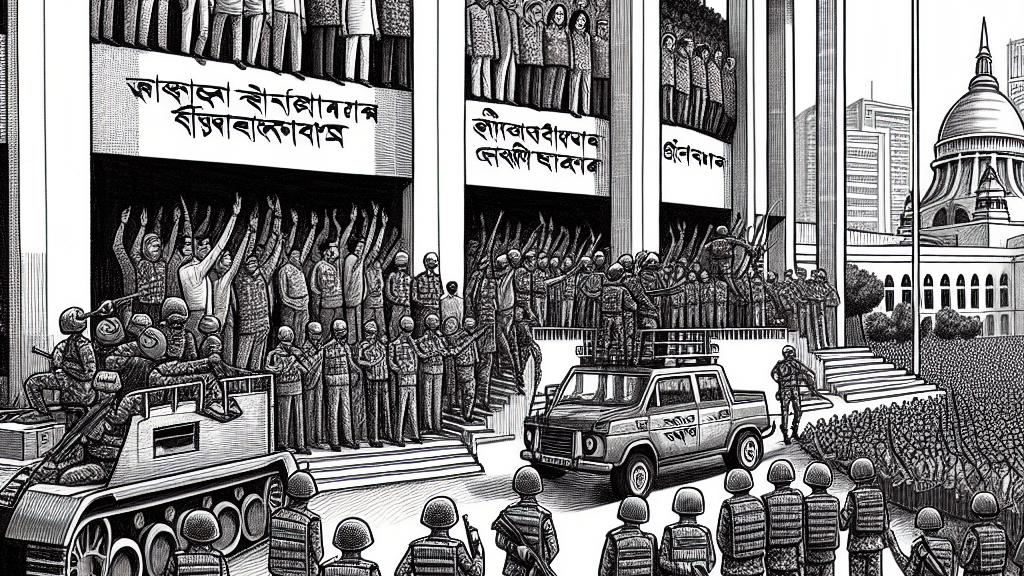Bangladesh Interim Government Empowers Army with Policing Authority
Overview
- The Bangladesh Army has been granted sweeping magisterial and policing powers, a move intended to stabilize civil unrest.
- This significant order comes during a time of political turmoil following the ousting of former Prime Minister Sheikh Hasina.
- Nobel laureate Muhammad Yunus now leads the interim government in navigating this critical juncture.

Context of the Delegation
In a striking and controversial decision, the interim government of Bangladesh declared on September 17, 2024, that the Bangladesh Army would assume magisterial and policing powers. This radical shift follows the dramatic resignation of former Prime Minister Sheikh Hasina, who fled the country amid widespread protests demanding her resignation. The decision marks a pivotal moment in Bangladesh’s political landscape, as the army is now enabled to exercise essential administrative functions and enforce laws across the nation. The announcement has sparked a myriad of reactions—from relief among some who seek greater security to concern among others wary of military involvement in civil governance.
Implications for Law and Order
The implications of granting these powers to the army are profound and multifaceted. Under the leadership of Nobel laureate Muhammad Yunus, the interim government faces the daunting task of restoring public confidence in law enforcement. Recent reports highlighted the police's struggle to maintain authority and order in the wake of anti-government protests, where accusations of excessive force proliferated. Communities across various districts have recently witnessed an uptick in violence and civil disorder. For example, in Dhaka, clashes between protesters and law enforcement resulted in injuries and heightened tensions. Therefore, the military's involvement is perceived as a necessary yet double-edged sword; while it may restore short-term security, it raises critical questions about the long-term impact on civil liberties and democratic processes.
Expectations Moving Forward
Looking ahead, many people hold their breath, hoping that Yunus will lead a fair and effective interim government capable of addressing the population’s pressing issues. His established reputation as a social entrepreneur brings a glimmer of hope for a balanced approach to governance, one that harmonizes law enforcement with the principles of democracy. Yet, the question looms: will the army's newfound authority breed a culture of dependency on military intervention in civilian matters? Will it deter protest and political dissent or forge a path toward a more stable political environment? As Yunus takes charge, he must tread carefully to ensure that civil society is not overshadowed by military power. The eyes of the world are upon Bangladesh as it navigates this critical juncture, balancing the scales of order and freedom in its quest for a brighter future.

Loading...